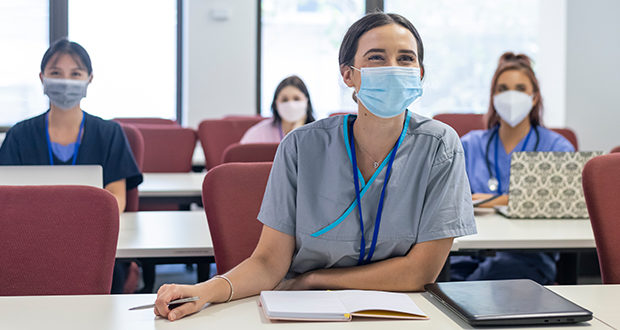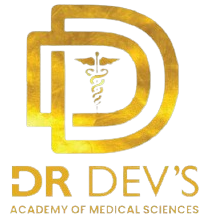Clinical skills development is a critical aspect of healthcare education, encompassing the practical application of medical knowledge and the honing of essential skills for patient care. As the landscape of healthcare continues to evolve, the need for innovative teaching strategies to facilitate clinical skills development becomes increasingly prominent. A range of innovative teaching strategies aimed at enhancing clinical skills development among healthcare students and professionals. Drawing insights from industry experts and educational research, we will delve into practical approaches that can elevate the quality of clinical education. For top-tier medical education consultancy post-MD, explore online fellowship courses with leading experts.
Simulation-Based Learning
Simulation-based learning has emerged as a cornerstone of innovative clinical skills development. Through high-fidelity simulations, students can engage in realistic scenarios that replicate patient care environments, allowing them to apply theoretical knowledge to practical situations. Simulations provide a safe and controlled setting for learners to practice clinical skills, make critical decisions, and develop confidence in their abilities. By incorporating simulation-based learning into healthcare education, educators can bridge the gap between theory and practice, preparing students for real-world clinical challenges. Elevate your career with Post MBBS Fellowship & Diploma Course guidance and more.
Interprofessional Education
Interprofessional education fosters collaboration among students and professionals from various healthcare disciplines, reflecting the multidisciplinary nature of modern healthcare practice. By engaging in interprofessional learning experiences, students gain insights into the roles of different healthcare providers, develop teamwork skills, and cultivate a deeper understanding of holistic patient care. This approach not only enhances clinical skills but also promotes effective communication and collaborative problem-solving, essential qualities for delivering comprehensive patient care in diverse healthcare settings. Advance your career with Post MBBS Fellowship & Diploma Course consultant services. Unlock new opportunities and excel in your medical journey with expert guidance.
Utilizing Virtual Reality and Augmented Reality
The integration of virtual reality (VR) and augmented reality (AR) technologies presents innovative opportunities for clinical skills development. VR and AR platforms can simulate immersive healthcare scenarios, allowing learners to interact with lifelike patient avatars and virtual medical environments. These technologies offer a dynamic and engaging way for students to refine their clinical skills, enhance situational awareness, and practice complex procedures in a risk-free digital space. By leveraging VR and AR, educators can provide students with interactive learning experiences that supplement traditional clinical training methods. Excel in your career with personalized guidance for Post-MBBS Fellowship & Diploma Courses. Trust our expertise for your professional advancement. Advance your career with Post
MBBS Fellowship & Diploma Course consultant services. Unlock new opportunities and excel in your medical journey with expert guidance.
Adaptive Learning Platforms
Adaptive learning platforms utilize data-driven insights and personalized learning pathways to cater to the individual needs of students. These platforms employ algorithms to analyze student performance, identify areas for improvement, and deliver targeted educational content. By tailoring learning experiences to the specific requirements of each learner, adaptive learning platforms optimize the acquisition of clinical skills and knowledge, ensuring that students receive personalized support and guidance throughout their educational journey.
Incorporating Gamification Elements
Gamification elements, such as interactive quizzes, serious games, and role-playing activities, can inject an element of fun and engagement into clinical skills development. By integrating gamified approaches into curricula, educators can motivate students to actively participate in learning activities, apply critical thinking in simulated scenarios, and compete in a friendly, educational context. Gamification not only makes learning enjoyable but also reinforces retention of clinical knowledge and skills through interactive and memorable experiences. Excel in your career with personalized guidance for Post-MBBS Fellowship
& Diploma Courses. Trust our expertise for your professional advancement.
Experiential Learning in Authentic Clinical Settings
Experiential learning in authentic clinical settings remains a fundamental component of clinical skills development. Immersing students in real healthcare environments, such as hospitals, clinics, and community care centers, provides invaluable hands-on experience and exposure to diverse patient populations. Through preceptorships, clinical rotations, and supervised practice, students can refine their clinical skills under the mentorship of experienced healthcare professionals, gaining practical insights that complement their classroom learning. Online PG Diplomas provide healthcare professionals with the credentials and expertise required to meet the evolving expectations of regulatory bodies, ensuring compliance with educational standards.
Cultivating Reflective Practice
Cultivating reflective practice encourages students to introspect on their clinical experiences, identify learning points, and refine their approach to patient care. By engaging in reflective activities, such as journaling, debriefing sessions, and peer discussions, students can critically analyze their clinical encounters, recognize areas for improvement, and integrate feedback into their professional development.
Reflective practice nurtures a mindset of continuous learning and self-improvement, fostering the growth of well-rounded and empathetic healthcare practitioners. Advance your career with Post MBBS Fellowship & Diploma Course consultant services. Unlock new opportunities and excel in your medical journey with expert guidance.
Conclusion
In conclusion, innovative teaching strategies play a pivotal role in advancing clinical skills development within healthcare education. By embracing simulation-based learning, interprofessional education, virtual reality and augmented reality technologies, adaptive learning platforms, gamification elements, experiential learning in authentic clinical settings, and reflective practice, educators can elevate the quality of clinical skills education. These innovative approaches not only prepare students for the complexities of modern healthcare practice but also nurture a culture of lifelong learning, adaptability, and excellence in patient care. Embracing these teaching strategies is essential for shaping the next generation of competent and compassionate healthcare professionals. Excel in your career with personalized guidance for Post-MBBS Fellowship & Diploma Courses. Trust our expertise for your professional advancement.

